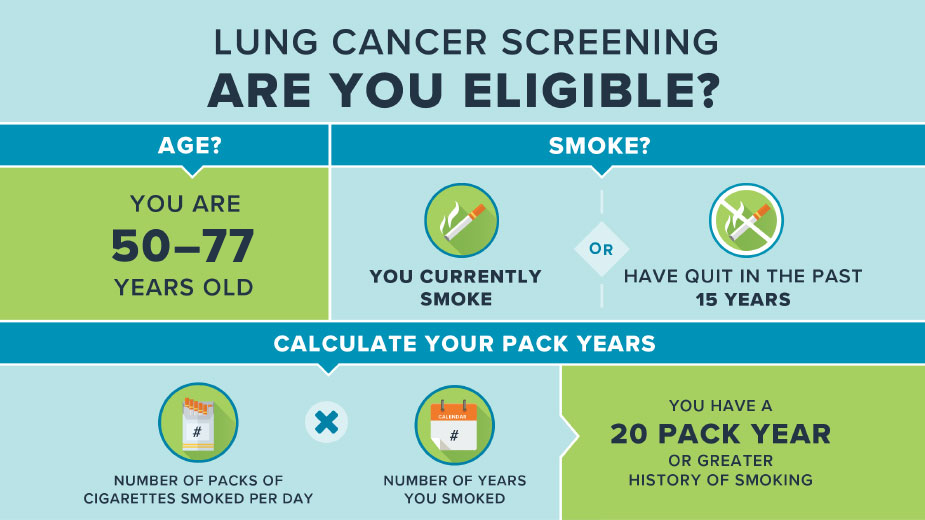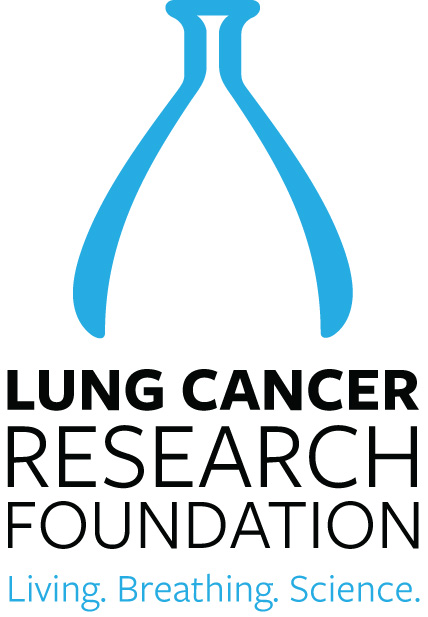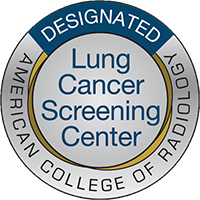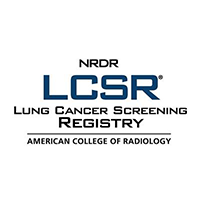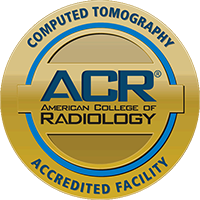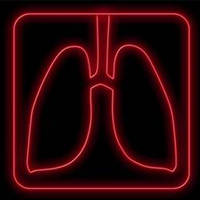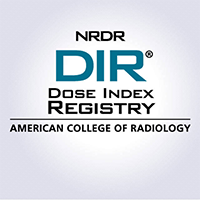EARLY DIAGNOSIS SAVES LIVES
Know your risk. Prevent late-stage Lung Cancer
84%
of lung cancer cases are diagnosed at late stages
Source: American Lung Cancer Society
When diagnosed early, the survival rate is high.
90%

When diagnosed late, the survival rate is low.
10%
HOW IT WORKS
Take control of your lung health with a 1 minute scan

01
You may be familiar with mammograms for breast cancer screening or colonoscopies for colorectal cancer screening however you might not know about lung cancer screening and CT scans.
Lung cancer screening is a relatively new screening option for patients with a history of smoking to detect lung cancer in its early stages. It involves the use of CT scans and has been available since 2013. However, the guidelines for who is eligible for lung cancer screening were recently revised in 2021 to allow more Americans to be screened. Early detection of lung cancer through screening can improve treatment outcomes and increase the chances of successful recovery.
02
Patients are eligible for this scan if they meet these 3 criteria:
1. Age 50-77
2. Smoked 1 pack per day for 20 years or 2 packs per day for 10 years
3. Smoked in the past 15 years
03
A CT scan (or CAT scan), is a quick and easy procedure. There is no need for an IV, and unlike MRIs, a CT scan only takes a few minutes. A patient lies down on the table of a CT scanner and the table slides in and out of the scanner smoothly. The technologist will be in a separate room but can see you clearly through the window.
During the CT scan, hundreds of images are created of the lungs from top to bottom, side to side and front to back. Looking at these images, radiologists can look for small nodules about the size of a pea or a marble. The majority of these will not be cancer and will be tracked with CT scans every year.
A small number of patients with nodules will be worrisome for cancer in which an additional scan or a referral to a pulmonologist will be needed.
04
It may seem obvious, but finding lung cancer earlier is better for many reasons. When lung cancer is smaller, it can be much more easily treated with a surgical procedure to cut out the small nodule. People can live longer when a small cancerous nodule is removed. When lung cancer is larger and spreads to other body parts treatment can be much more complicated to treat.
05
There are pros and cons to doing a CT scan to screen for lung cancer. It’s important to know that there is a small amount of radiation associated with each of these CT scans, however, the risk of the radiation is low compared to the benefit of finding lung cancer in someone who has smoked for many years.
In order to get the most benefit from lung cancer screening it is recommended that screening occurs every year until the patient is 77 years old or has been 15 years since their last cigarette.
06
Be sure to ask your doctor any questions you may have to be sure lung cancer screening is right for you.
We help you get a life-saving lung cancer screening at no-cost to you
And best of all, it is super simple, we help you every step of the way
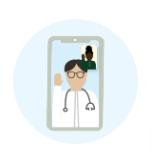
Talk to our doctor
Simply add your information, we will contact you via a telemedicine video chat to an Oatmeal Health provider to discuss your eligibity.
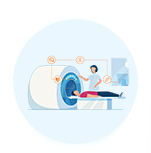
Visit a local imaging center
We will help you coordinate an appointment with a imaging center near your house. The low-dose CT scan only takes a minute to perform and Medicare / Medicaid covers the cost for eligible patients.
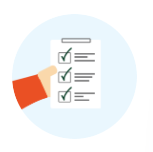
Clear results
Receive clear results on what to do next and gentle reminders from our caring patient team backed by our AI-assisted radiologists.
Frequently Asked Questions
Working together to improve access to lung cancer screenings for everyone
Oatmeal Health collaborates with companies, governments, nonprofits, and other organizations to address complex healthcare challenges on a national scale. Our partners contribute more than money. Their ideas, volunteer power, in-kind support, and more are helping build stronger communities.
